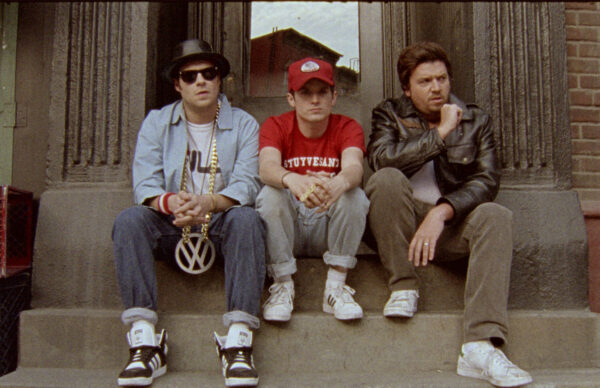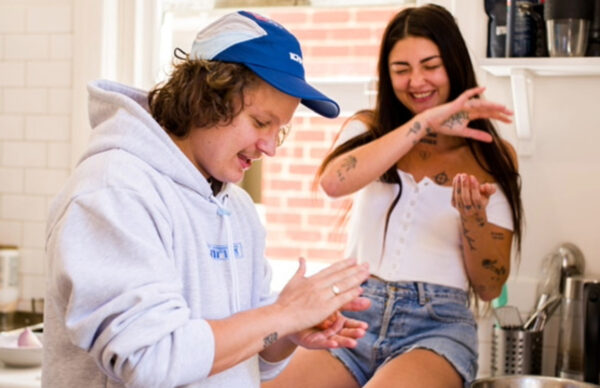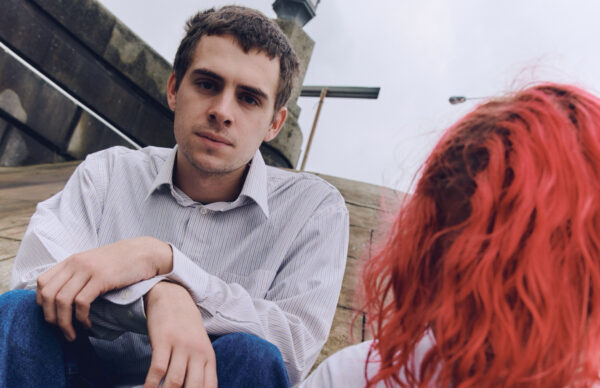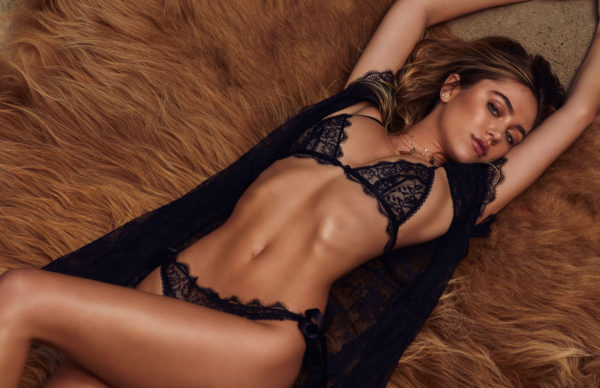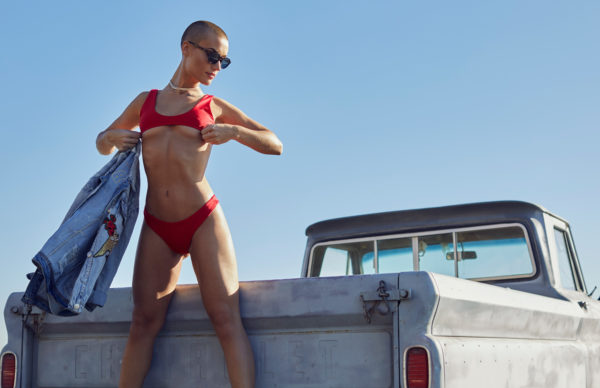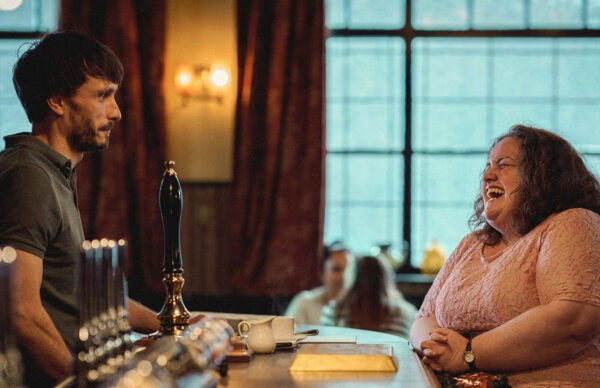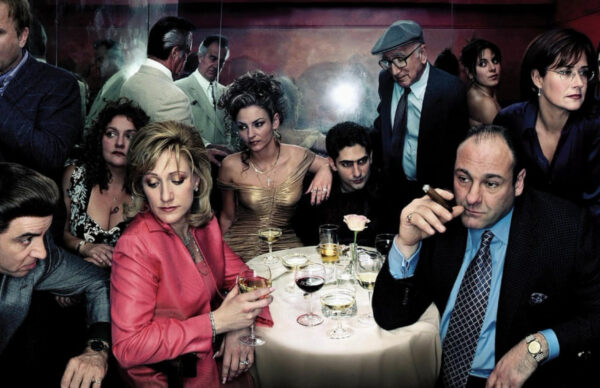If you’re going to tell your story, make sure to do it with style!
This September, audiences will meet the real Israel Adesanya, with the documentary ‘Stylebender’. Directed by New Zealand’s Zoe McIntsoh, the film captures an intimate look into the enigmatic UFC superstar’s life.
Fight fans worldwide or anyone caught doom scrolling through sports highlight reels are well aware of Adesnya’s reputation in the octagon. His flagrant antics have defined a trailblazing fifteen UFC appearances, including capturing the world middleweight title on two occasions. In a sport where violence can reach biblical proportions, Adesanya has perfected his elegant interpretation of the sweet science. With his heels planted firmly on a blood-soaked canvas, ‘The Last Stylebender’ can throw punches and kicks like he’s manipulating the air around him. Since 2018, Adesanya has garnered a social media following in the millions, paychecks with similar figures, and an undeniable level of global superstardom.
What happens when you strip off the four-ounce gloves, open the chain-link door, and usher a fighter out of the cage? ‘Stylebender’ explores these questions by showing the results of saddling the camera right by the side of Adesanya for the better part of six years. In her past works, McIntosh has become well acquainted with stories of people living on society’s fringes. However, ‘Stylebender’ is her first foray into the contentious fight game. Once the arena lights had dimmed, Mcintosh found a young man in a constant battle with the duality inside him.
When the film opens, we are greeted by a scene in which Izzy slowly approaches a caravan in the middle of a field. We soon discover this is a therapy session and will act as the connective tissue for the rest of ‘Stylebender’. In these moments, we see Adesanya challenge and embrace the rage inside him while validating his vulnerabilities. While his victories over Robert Whittaker, Paulo Costa, and Marvin Vettori are featured, the real action occurs when Adesenya opens up and bares his soul for the camera.
We met with McIntosh at a Surry Hills cafe on a surprisingly warm winter’s afternoon. Over ice coffees we chatted about everything ‘Stylebender’. Have a listen to the interview below.
https://vimeo.com/865877479?share=copy
For those of you who prefer to read, check out the transcript below (Note: the interview has been slightly amended for publication)
So, Zoe, congrats on Stylebender! As I was saying, I got to see you from all the way at the back of the cinema at last night’s Q&A screening. Firstly, what’s it like watching the film in a packed cinema?
Well, It wasn’t the first time I had been in Tribeca, in New York, where it premiered. But actually, having the screening in Sydney last night was just really special. It felt like there were a lot of fans there, and yeah, it was really warmly received, which is cool.
Is it always like a little bit of extra pressure when it’s like an audience who also loves Izzy?
Yeah, I definitely felt a bit of extra pressure. Given that so many of his fans were there. There would be high expectations or just expectations in general that they’d want to see, hopefully it delivered.
Before we deep dive into Stylebender, we’re going to talk about some of your past works for a little bit, such as ‘Lost in Wonderland’, ‘The Deadly Ponies Gang’, and even recently ‘My Break Up With God’. You have this affinity with kind of outsiders looking to find themselves. What kind of attracts you to that idea?
I’ve been asked this a lot, and it’s definitely in my work 100%. I don’t know whether I consciously do it, but I am certainly attracted to people who are unafraid of getting out of their comfort zone or stepping to the beat of their own drum. They have adversity or a setback in their life, but somehow triumph, and they do it in a weird way. I just love characters like that, and I don’t actually know where that comes from.
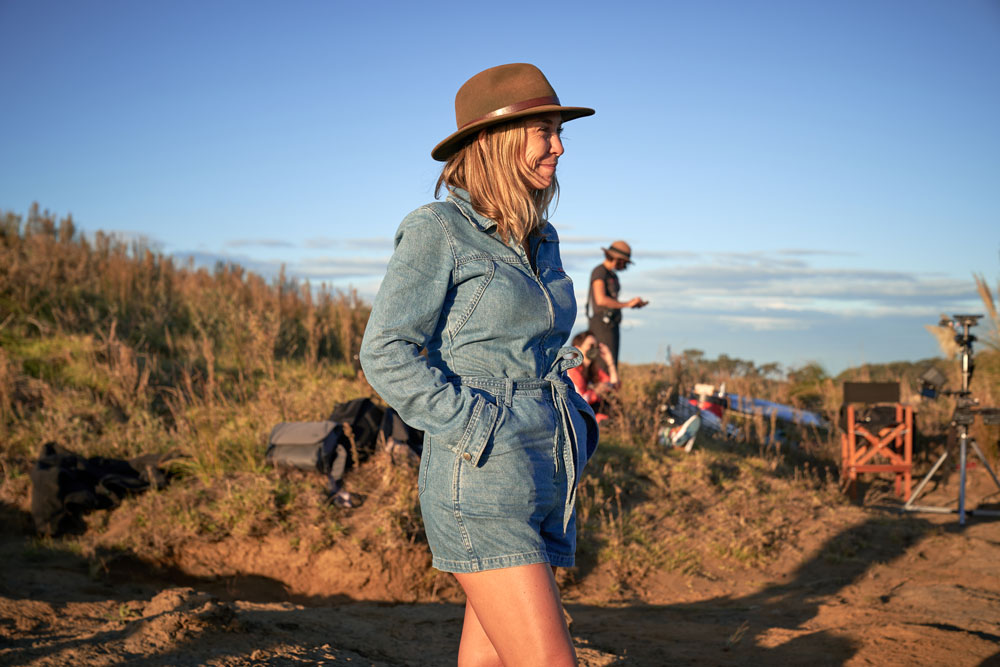
Did you get that impression from Izzy the first time you met him?
Yeah, he absolutely ticked the boxes for me in terms of a character that I would have at this time. He’s charismatic, he’s controversial, he’s complex. He’s got so many internal complexities and contrasts. I was immediately interested and intrigued.
As a filmmaker and documentarian, when you see a story like Izzy’s, Do you know what it is from the outset, or do you find out during the filming process?
I think it’s a bit of both. You know, as a filmmaker, you have to write a treatment to get funding, so you’ve got to give them a sense of the story. I had a sense of the general structure and outline, but wow, that changed so much. I think the biggest turning point for me was when I found out he had a therapist. I suddenly thought, right, that’s the way that we’re going to see the vulnerable and truthful Israel and not just the glossy, hyped-up one. That was when I knew that we really had an interesting film.
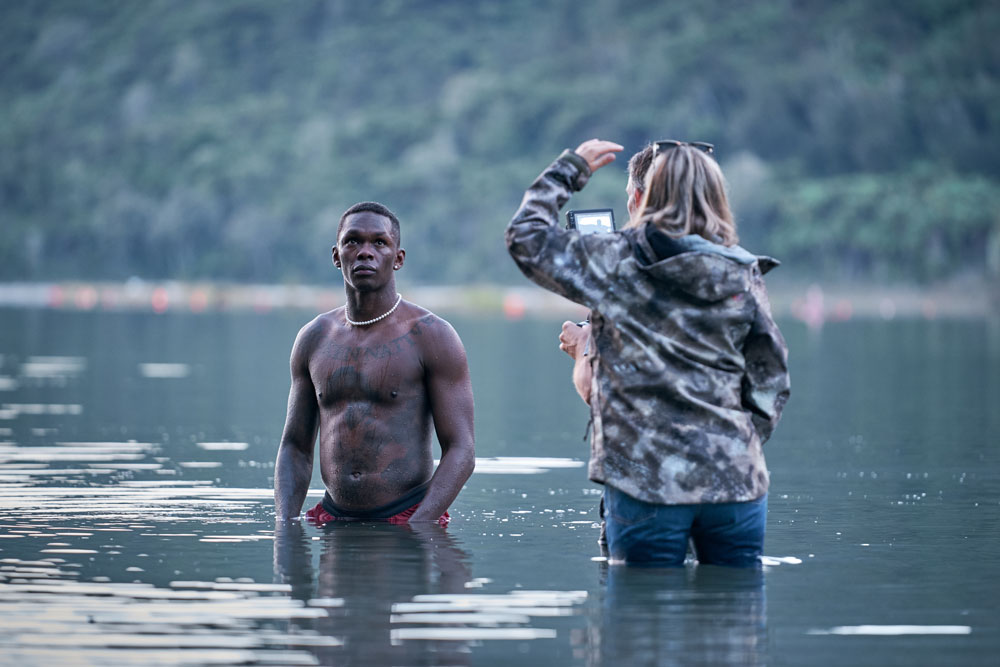
In the past, he’s talked about in relation to ‘Stylebender’, how it was vital to the film that you had 100% creative control. Was that something, let’s say from Izzy’s side, was a leap of faith, or was that something that was worked out from the jump during the filming process? How did you come to that agreement?
To his credit, Israel never questioned that. There was a level of trust and an exchange between us where he was on board with my vision, and he could tell I was there for the right reasons. You certainly don’t make money in this industry (laughs), in this job, so I wasn’t there for that, and I think he just trusted that.
But yeah, creative control was crucial to me because he’s a superstar at the end of the day. If people thought for a second that this was like a puff piece or that you’re only seeing him in this one-dimensional way, A)I don’t want my name attached to that, and B)I just don’t think anyone would want to watch it.
Interestingly enough, because I saw it with my brother and we’re both fans of Izzy and UFC, etc… But by the end, I forgot that fighting was even involved in the film. From the outset, Did you think of it as a sports film, or were you actively trying to push that to the back and really hone in on Izzy during the film?
I think initially, it had to have fighting in it because that’s obviously such a central part of him and his journey. But it wasn’t everything. Right in the beginning, I spoke to Israel about the need for this film to go beyond the UFC fans. It had to resonate with my mum, my best mate who came last night, and people who are fascinated by psychology and what drives people to try and accomplish these incredible things which he’s done. I mean, he’s a champion after champion after champion.
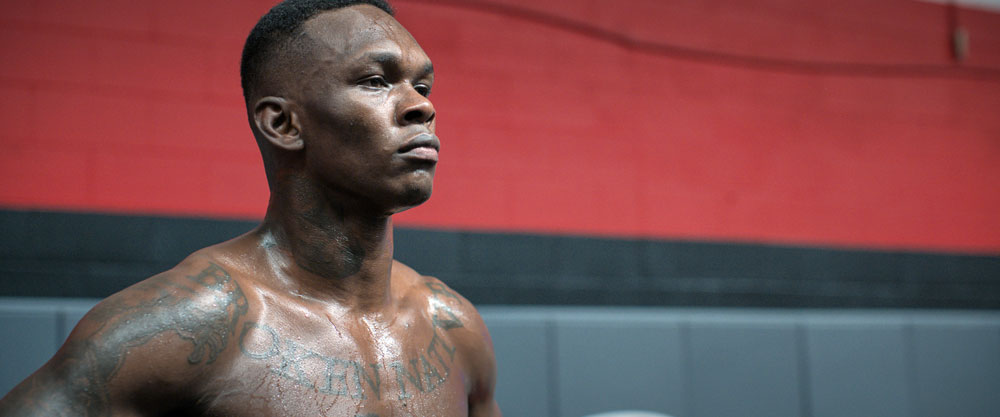
Speaking of fighting, the backdrop of the film are these big fights. But you got Izzy to really open up and show a sensitive, vulnerable side to himself. Was it jarring for you to see that duality of seeing him punch people in the face, in the cage?
Yeah, that world duality is bang on because he’s full of that and he’s full of contrasts.
Was it hard to see? It wasn’t necessarily hard to see, but it certainly made him an extremely interesting subject. To have that duality within you is really interesting. I think everyone actually has those. Everyone has parts of them that potentially want to fight someone. And also that sensitivity, the emotional side. Whether we act on it? Probably not, but we’re constantly battling between those two dark and light sides in us.
Yeah, 100% (laughs). One thing I loved about the film is that it captures all these raw and candid moments. Such as him talking about his past traumas, his upbringing, the passing of Fau Vake and a specific online controversy. Curiously, how do you approach the camera’s presence when filming those moments?
Yeah, it’s tricky. Around the therapy sessions, I made sure that I was completely out of the room and listening with audio so it could evolve and happen right then and there. With the funeral and death and all that stuff, that was just observation, you know? And Jeff, one of his friends, really helped me out there in terms of that intimate access that he was able to get.
Correct me if I’m wrong, but you have a background in dance?
I would not say I have a background (laughs). I just really love to dance. I’ve done tango, but I wouldn’t say I’m a champion tango dancer.
I love dancing, and I love that it’s a form of your own unique expression. I don’t care if you can dance to a rhythm or what; I just love it.
As my brother and I drove over Sydney’s beautiful Anzac Bridge after watching the screening, we talked about how physicality is such a big part of any movie related to sports. In a movie that would usually be related to fighting, many cutaway shots would be punching a heavy bag or skipping rope. But you chose the route of dancing, showing his ability to move his body in this amazing way with krumping and popping.
What made you decide to incorporate dance into the film, or that was the type of physicality you wanted to show in the film?
Yeah, I think when I found out the type of dance that he does, which is krump and how it’s all about expressing your emotions and showing all your vulnerabilities, I was like, Absolutely, I can use dance to illustrate what’s going through him psychologically.
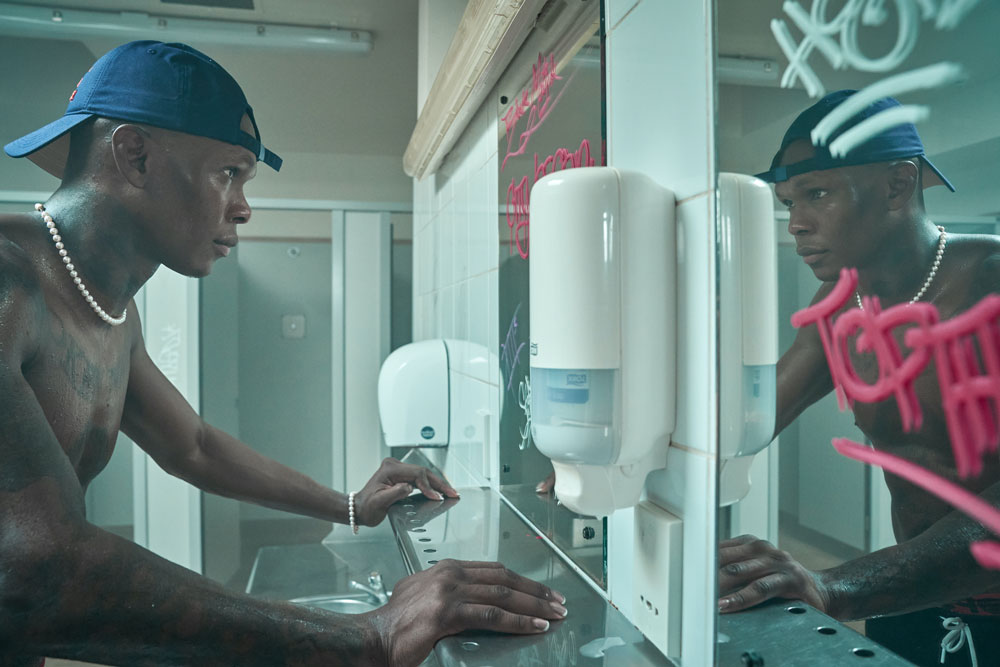
When we understand his bullying and learn about that, we see him in this urinal dancing, it’s moving, and it’s intense. I probably gave away too much of it anyway (laughs)
Spoiler alert.
Yes, spoiler alert (laughs).
It was amazing when he said that he can fight in front of 16,000 people, but dancing in front of three people scares him.
Yeah, and that’s genuine. I found that it was harder to get access to film his krump dancing than to film his full-on therapy sessions. It’s like a very vulnerable space for him, it’s like someone reading his diary, really.

And I guess to wrap it up with the last question. I think a lot of people will love this film. A lot of fight fans will see this film, a lot of Izzy fans. Even speaking for myself, this film resonates in such a way for anyone and, especially children of immigrants. When I was watching it, even though I’m not Nigerian (laughs), I grew up in a Chinese household, and the similar ways that parental love is shown and experienced really resonated with me.
What do you hope audiences take away from the film besides seeing Izzy?
I really love hearing your interpretation of it. It’s cool to hear that.
I hope that people just embrace their weirdness. I think after following Israel since 2019, one of the strongest things I observed as he’s finally got to a place where he’s understood that his weirdness or what was bullied out of him at school is actually his superpower. If you can stop trying to be like everyone else and actually just be your strange, quirky self, that can be a weapon. It’s a beautiful thing, and I love that.
Thank you for your time, and congratulations on Stylebender, and good luck to Izzy on Sunday!
Thank you so much. It was a great chat, cheers.
Special thanks to Zoe McIntosh for taking the time to chat. Make sure to check out ‘Stylebender’ when it hits cinemas this week! Have watch of the trailer below.
